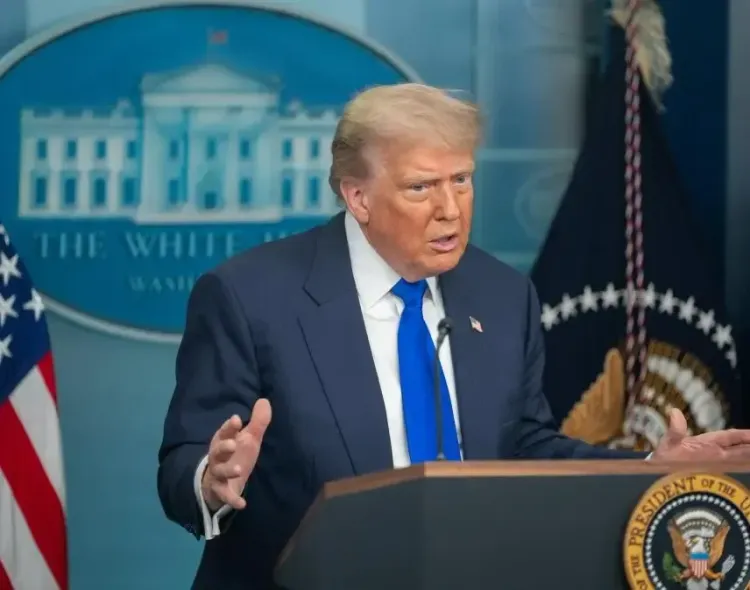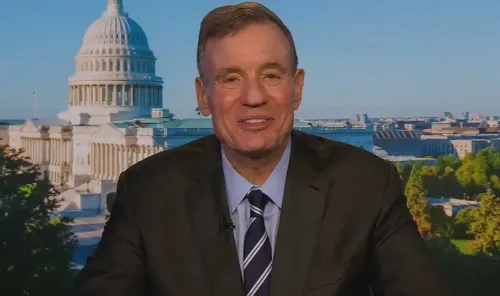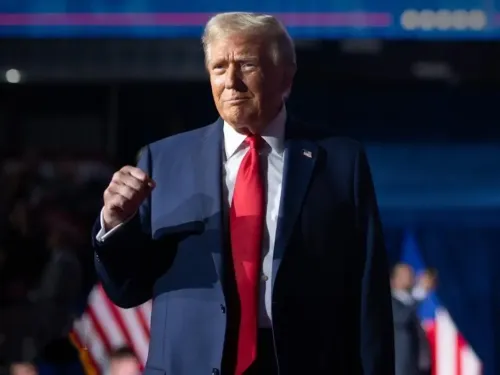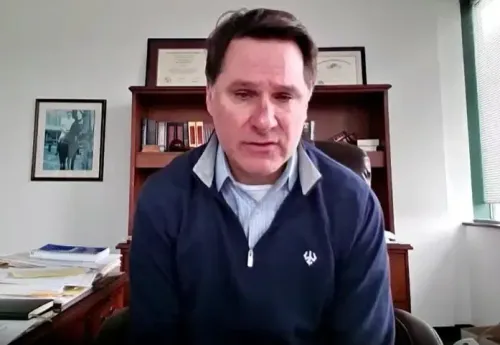Is the H-1B Visa Crackdown Really Anti-Business?

Synopsis
Key Takeaways
- New H-1B restrictions include a $100,000 fee and a weighted selection process.
- Experts warn these changes may deter foreign talent from coming to the U.S.
- Universities could face financial challenges due to reduced international student enrollment.
- Legal challenges to the new policies are anticipated.
- Corporate silence on these issues raises concerns about business freedom.
Washington, Sep 25 (NationPress) Following the announcement of new restrictions on H-1B visas by the Trump administration, a prominent immigration specialist in Washington has expressed that this move represents a shockingly anti-business approach. In an exclusive discussion with IANS, Sarah Pierce, the Director of Social Policy at Third Way, a think tank, highlighted that the current policies render the United States unappealing to foreign students and professionals.
“The actions taken by the Trump administration are prompting foreign talent to depart from the United States, as they have initiated attacks on international students. There are numerous steps being undertaken that diminish the appeal of the United States for both international students and workers,” she noted.
Pierce further stressed that the targeting of international students will ultimately negatively impact American students.
“US universities significantly rely on the financial contributions from international students who pay not only full tuition but also additional fees to study here. These revenues often support scholarships for American citizens,” she pointed out.
On Tuesday, the US Department of Homeland Security (DHS) proposed changes to the regulations governing the H-1B process.
The DHS's proposal aims to eliminate the current lottery system in favor of a weighted selection process that generally prioritizes the allocation of H-1B visas to higher-skilled workers.
This proposal follows a proclamation signed by US President Donald Trump last week, imposing a $100,000 fee for each new application to tighten H-1B visa issuance.
Pierce, who previously served as a Policy Analyst in the Humanitarian Affairs Division at US Citizenship and Immigration Services, indicated that the high fee and new weightage system are likely to face legal challenges.
“The $100,000 fee is astonishing on its face. I am quite certain it will be contested in court. Establishing valid grounds will be challenging. These are excessively high obstacles for a program that is crucial for many US employers,” she remarked.
While signing the proclamation at the White House, Trump stated that the goal is to prioritize American workers.
A White House spokesperson also conveyed to IANS that the policy aims to discourage companies from abusing the system.
“President Trump has committed to prioritizing American workers. This practical measure does just that by discouraging companies from exploiting the system and driving down wages. It also provides certainty to American businesses that genuinely wish to recruit high-skilled workers to our nation but have suffered due to system abuses,” stated Taylor Rogers, the White House spokesperson.
Pierce acknowledged the significant issues with the H-1B visa program but argued against completely dismantling it.
“I believe there is no need to eliminate this program or approach it in the manner the Trump administration is pursuing. They are using a chainsaw when a scalpel is necessary. There are effective adjustments that can be made to allow individuals to challenge cases where companies blatantly misuse the H-1B visa to displace US workers,” she explained.
She cited the recent deportation of South Korean workers from a Hyundai factory in Georgia as an instance of a direct conflict between the administration's goals of revitalizing US manufacturing and its ongoing immigration crackdown.
“The administration's immigration policies stand in direct conflict with their tariff strategies and desire to bring manufacturing back to the US. By restricting the entry of high-skilled immigrants, we are jeopardizing the interests of companies that may wish to establish operations in the United States,” she added.
Regarding the relative silence of tech firms and other corporations about the H-1B visa restrictions, Pierce believes that major companies are apprehensive about provoking the administration.
“One of the most alarming aspects of this administration is how intimidated they have made corporations and businesses in the US. We are witnessing a frightening phase in American politics, which is why there is minimal resistance from businesses regarding these changes to the H-1B visa,” she concluded.










